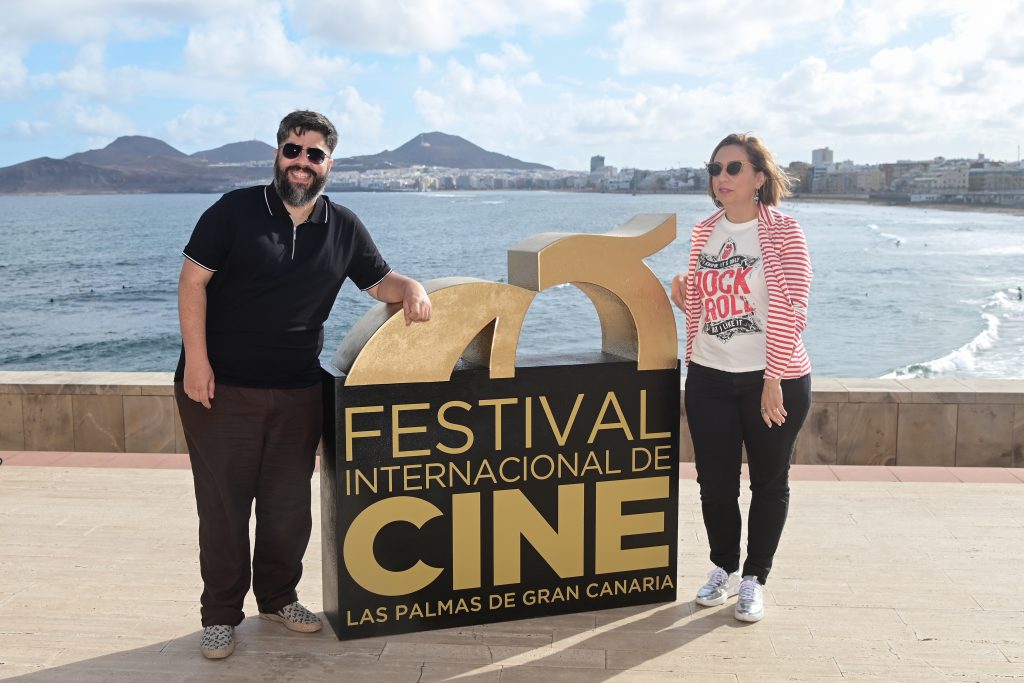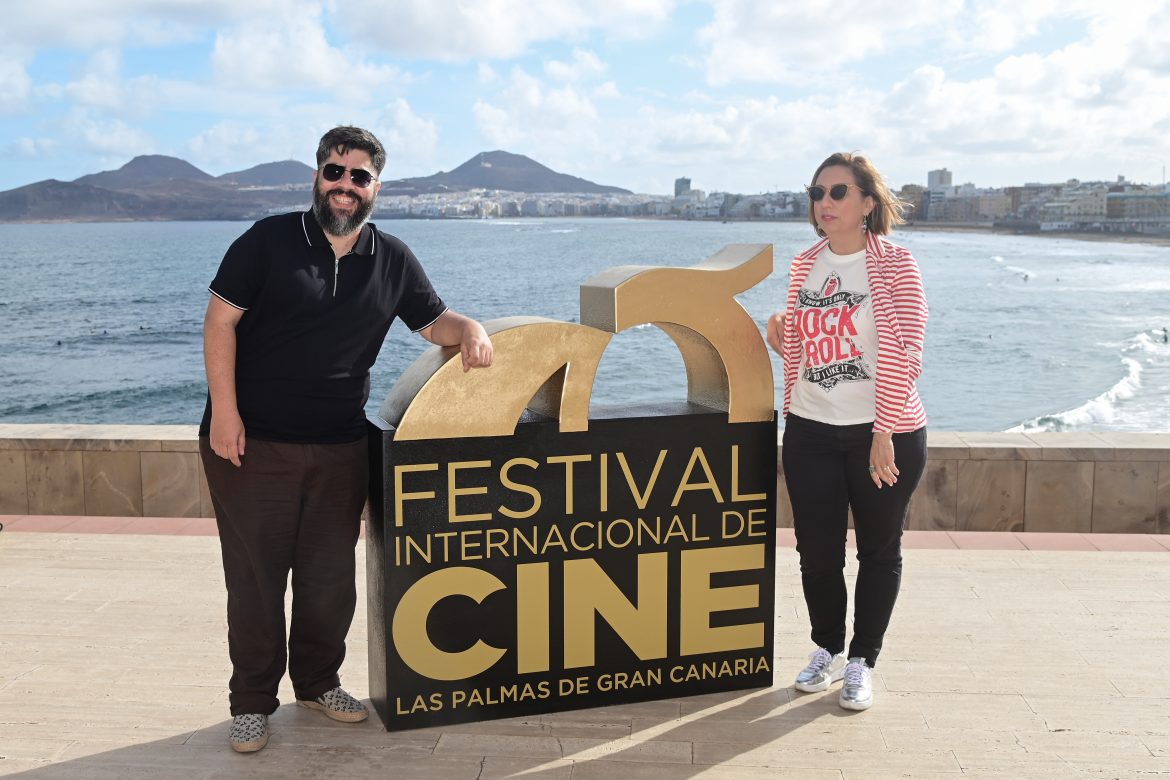- The filmmaker from Tenerife, founding partner of the distribution company Digital 104, creates a sensitive memory of his summers at his grandmother’s house in Vilaflor.
- Gonzalez intends in this feature film “to assert our identity, because in art and in cinema we sometimes forget our rural identity: I wanted to defend where we come from.”
- Una casa en el pueblo will be screened this Sunday, April 21, at Cine Yelmo Las Arenas (Screen 6, 10:00 a.m. and 6:00 p.m.)

Las Palmas de Gran Canaria, Saturday, April 20, 2024. Una casa en el pueblo (A House in the Countryside) (Domingo J. González) refers to a very specific house and a perfectly identified village: Vilaflor, in the south of Tenerife. The house is the director’s summer refuge, where he used to go every year with his family. It was also his grandmother’s house. González questions himself aloud during his feature film, recalling those summers when he himself was absent because he was “living a life that you thought you were entitled to,” and those others in which he resumed his habit. “You’re late: you’ve spent a lot of time looking for stories outside and wasting the ones you had next door. Your grandmother’s story is the story of many women of her generation.” But Una casa en el pueblo is much more than an intimate approach to a meeting place with loved ones, with the grandmother: it is also the vision of a traveler on this “crossing point for Sunday excursionists on their way to Mount Teide,” in addition to González’s directorial debut at the Las Palmas de Gran Canaria International Film Festival. Una casa en el pueblo’s first two screenings will take place this Sunday, April 21 (Cine Yelmo Las Arenas Screen 6, 10:00 a.m. and 6:00 p.m.).
Domingo J González developed his work “before the pandemic.” It was edited during the confinement, with all the material located and ready for it: family home and cell phone videos. “Then there are some things I shot on holiday. Plus other things from the filming that emulated those vacations. And there’s archive material from the village.” The editing was carried out by Claudia Torres, “because I also needed a vision from the outside,” says the author.
González had always thought that “this house could be the protagonist of a film, but I didn’t know why. In 2018, I edited some home recordings into quite a homemade short film, 28 de agosto, and somehow that was the beginning of the project. Later, with Manual de invisibilidad, which was about the forgotten figure of Víctor Núñez, I used family material: that was another incentive. Of course, the last moment of epiphany was the death of my grandmother.”
“This project had been in the pipeline for many years, when my grandmother was alive,” summarizes the director. “I think the film finally came about because she was no longer around. I knew that this was the moment when I had to make it.”
González inserted in his piece the readings several people from the village made of foreign travelers who passed through Tenerife and Vilaflor during the 19th and 20th centuries, a choice that adds a transcendental background to the feature. “Although the film is very personal, it’s not only about that. The film then opens up. And one of those openings is the external vision. I’m not someone from the village, because I don’t live there, and I also have a bit of the vision of the traveler who only sees it in the summer,” the islander filmmaker explains.
The director also made “an important decision” from the cinematographic standpoint: “we always see the village from the house, because it is the protagonist. And because that has been my real village, the one I saw from the inside.”
Gonzalez has intended to reflect on his piece “the idea of asserting our identity, because we are people who come from there, from that house, from that environment. I may have lived in other places, watched other movies, met other people. But I have spent all my summers there. I think in art, and especially in cinema, we sometimes forget our rural identity. I wanted to reclaim that identity, where we come from.”
The director could get a first reaction from the audience at MiradasDoc, the International Documentary Film Festival of Guía de Isora where Una casa en el pueblo premiered. “I was able to see that people who were not from Vilaflor identified with it. Even spectators from outside the Canary Islands. This, the house, the village, the migration from the village to the city… are themes that connect many people. I wanted the film to reach through my personal circumstances the audience’s life, their family, their history, their personalities.”
The filmmaker from Tenerife agrees that, as a teenager, “and as you grow up, your friends do other things, and everything happens far away from here. Then you have that common feeling: we think we are missing out on something we should experience. But then the truth is that we all come back in some way.” In fact, he says in his work that having experienced that moment led him to see that house and those family meetings from a different perspective. Without never ceasing to reflect on his own memories, because “in those summers our access to music was a radio from the south, in which they played nothing of what I listened to at home. In the end, it was a vacation from myself as well.” Although in the background of Una casa en el pueblo his grandmother always stands out. Even her brief moment on television, as an extra in a video clip by Alfredo Kraus.
Documentary cinema in the Canary Islands
The filmmaker and founding partner of the distribution company Digital 104 makes his directorial debut in the Gran-Canarian capital with a non-fiction documentary. Regarding the genre, he accepts that “at an industrial level it is cheaper to make a documentary, except in certain specific cases. But in the Canary Islands this conditioning factor is becoming a virtue, favored by festivals like this one, which has promoted this type of cinema in its programming. And also MiradasDoc, of course.”
However, he points out that his feature film “is a documentary film, yes, but it also plays a bit with some fiction in order to talk about reality, but from different points of view.”
González is well aware that “we have been doing this for many years. We’ve been at the Festival as a production company. But I, as director, have not. For me it’s a joy to be here. A responsibility? Well, the film is already made. I hope it connects with people, which is what it’s meant to do. I calmed down with that first contact at MiradasDoc: the film has an audience, I think, and now we have to look for it. I hope to find it, although I understand that it’s a cinema that doesn’t have to please everyone.”
The director from Tenerife says that, as a spectator, the Las Palmas de Gran Canaria International Film Festival “has been very important. And as a creator, I think more so: for me and for many others, because, as I have discussed with other people, it has opened our minds, cinematographically speaking. It’s a date we always mark on the calendar. And as a producer, it is also an essential meeting point for the sector.”
Una casa en el pueblo (Domingo J. González) is one of the feature films programmed in the Canarias Cinema section of this 23rd Las Palmas de Gran Canaria International Film Festival, which also includes La hojarasca (Macu Machín), Un volcán habitado (David Pantaleón/José Víctor) and Voy a desaparecer (Coré Ruíz). There will be two screenings of each of these films.
The festival’s entire program is available on its official website, lpafilmfestival.com.
Share this Post

